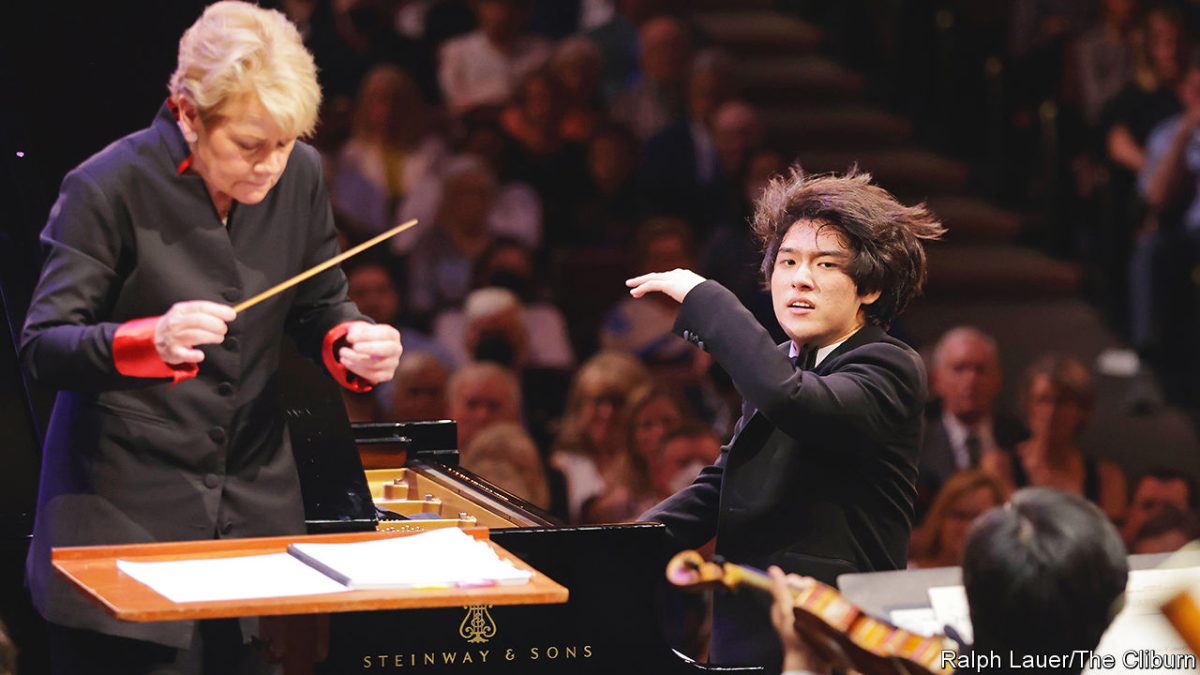Before his performances at the Cliburn Piano Competition, Yunchan Lim was an unknown pianist. Only 19 years old, his Gold Medal came with the added reward of performing many more concerts across the globe. Doubtless, his career is made, and he will likely become one of the great pianists of not only his generation but of those past.
He was born in South Korea and from a young age showed promise, winning various competitions and receiving awards both in Korea and overseas. However, none of them truly brought him into the spotlight.
In 2022, he competed in the Cliburn Piano Competition. It, along with some other competitions, notably the Chopin International Piano Competition, is one of the most prestigious piano competitions in the world.
The competition is named after Van Cliburn, a Texan pianist. Cliburn won the Tchaikovsky competition in Russia during the Cold War. Doing so, he won the hearts of the Russian audience through his playing. Simultaneously, gained the favor of the American audience as well. He is the only classical musician to have had a ticker-tape parade, in which confetti was thrown upon him as he paraded through the streets. Cliburn died in Fort Worth, Texas, where his namesake competition is now held.
A great help to Yunchan’s rise to fame was the Cliburn competition, as it live streams and releases video performances for the competitors. Even in the early rounds, which did not reach a wide audience, commenters were praising his pianism (although, to be fair, they always do that). As part of the competition, he played some of the hardest pieces written for the piano repertoire: Liszt’s 12 Transcendental Etudes—in a row.
However, it was only in the last round when people realized the potential of the 19-year-old. He played the massive Rachmaninoff Piano Concerto no. 3, where the soloist tirelessly plays for 40 minutes. The concerto is virtuosic, but the soloist must also maintain tempo and listen to the orchestra. Yunchan, despite his age, ticked all the boxes perfectly.
On YouTube, people realized they were listening to the birth of one of the great pianists. Ben Laude of ToneBase Piano, a YouTube channel providing insight into various pieces, even compared it to Lisztomania, in which people went crazy for Franz Liszt. He was the composer of the aforementioned transcendental etudes, and not only was he a great composer of his time, but he was also one of the most virtuosic players. His performances were so impressive that people went crazy for him.
Since winning the Gold Medal, Yunchan’s performance has gained millions of views on YouTube. One of his proceeding performances also found its way onto YouTube, and the beauty lies in the fact that it is a recital. For competitions, a pianist has to be flawless. As such, it seems as though Yunchan’s performances are heavily influenced by highly praised pianists, however an important distinction is that in their time, these pianists were considered almost revolutionary. In recitals, Yunchan gains the freedom to make many of his own decisions and express himself more fully. A notable example is how light and lyrical his touch in Tchaikovsky’s seasons are. Most recently, he gave a concert on September 10th, 2023, in Fort Worth, which I attended.
For this concert, Yunchan played the Schumann piano concerto with the Fort Worth symphony orchestra. This concerto is a relatively unique one in the classic piano concerto repertoire. While most feature the piano as a prominently solo instrument with flashy passages, Schumann’s is written in such a way that the piano feels more like an extension of the orchestra. Yunchan played this role beautifully, blending into the orchestra and yet remaining the center of attention. One could clearly see how comfortable he was at the piano, for it was the very same one on which he won the Cliburn. Scott Cantrell writes of the performance given on Friday that “his highly personal and deeply felt relationship with the piece absolutely won me over.”
Only after the performance could one see that he was not a seasoned performer, as he awkwardly accepted a gift of flowers and forwarded it to the conductor. Typically, at the end of classical performances, the performer leaves the stage, but things aren’t over yet. Assuming a wonderful performance, as this one certainly was, the audience continues their clapping, thus calling the performer back again to accept the applause. After one or two repetitions of this, the performer generally performs an encore. Yunchan chose to play a Chopin nocturne, and again his touch shined. Again, he received a standing ovation, but as the hall lights turned on, it was clear it was over.



Be Frank • Jan 17, 2024 at 5:09 pm
Every century in ages of classical masterpieces need great virtuosic interpretation to make them live in the audiences ear! Yunchan Li are one of the blessed performer especially Chopin, after Yundi Li, not replacing him per say, in compliment of the virtuosity and disposition the audiences had miss for a while. Now that Yundi is back in play, they will both resonate each other in the musical atmospheric sense!